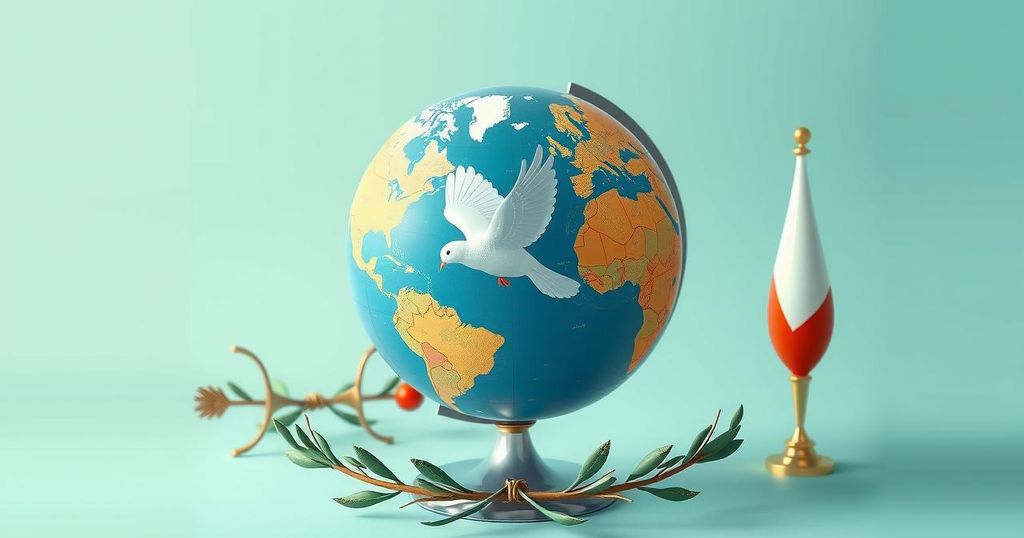President Trump has proposed nuclear talks with Iran, warning of military action if discussions fail. Iran’s Foreign Minister declared that negotiations are unlikely while the U.S. applies maximum pressure. Trump’s overture contrasts with his previous hardline stance and includes warnings about military intervention. Amidst regional instability and tensions surrounding the JCPOA, Iran’s response indicates caution regarding U.S. diplomacy.
United States President Donald Trump has communicated a desire for nuclear talks with Iran, urging discussions aimed at halting the nation’s nuclear weapons development. He issued a warning of potential military action should negotiations not materialize. Iran’s Foreign Minister, however, declared that the country would not engage in talks unless the United States ceases its maximum pressure tactics, indirectly addressing Trump’s letter.
Trump’s initiative represents a notable shift from the hardline position prevalent during his initial term and may create tension between the U.S. and Israel, which conducted military strikes against Iran recently. In his correspondence to Iran’s Supreme Leader, Ayatollah Ali Khamenei, Trump stressed that a negotiated resolution would be more beneficial for Iran, emphasizing the dire consequences of military intervention.
Details regarding the 2015 Joint Comprehensive Plan of Action (JCPOA), established under former President Barack Obama, highlighted its intention to limit Iran’s nuclear developments in exchange for sanction relief. The agreement deteriorated after Trump pulled the U.S. out of it in 2018 and reinstated extensive sanctions. Iran adhered to the JCPOA until a year after the U.S. withdrawal, after which it began reverting its commitments.
Upon returning to office, Trump announced the revival of his maximum pressure policy towards Iran, albeit with reluctance. He has distanced himself from his previous administration’s officials regarding Iran, claiming that Washington’s foreign policy is conducive to war. Furthermore, reports indicate dialogue between a Trump ally and Iran’s UN ambassador, aiming to convey a message of diplomacy and calm.
Despite Trump’s overtures, Iran remains wary of engaging in negotiations while still facing U.S. threats. The Iranian Foreign Minister reiterated that direct talks with the U.S. will only proceed if maximum pressure tactics cease, asserting that military efforts cannot dismantle Iran’s established nuclear technology. This was stated amidst ongoing skepticism regarding U.S. commitment to trustworthiness, especially in view of the JCPOA’s failure and subsequent diplomatic efforts.
Amid Iran’s weakened state since the 1979 revolution, Israeli military actions have substantially impaired Iran’s defenses against neighboring threats. Furthermore, Iran’s longstanding partner, Syria’s Bashar al-Assad, faced significant losses in December, contributing to Iran’s vulnerabilities. While Iran maintains it is not pursuing nuclear weapons, negotiations for reviving the JCPOA have been stymied, particularly around issues of sanctions relief.
In conclusion, President Trump’s call for nuclear discussions with Iran signifies a shift in approach, although Iran’s response highlights the challenges in establishing negotiations amid severe U.S. pressure. The context of the deteriorating JCPOA and regional dynamics adds complexity to diplomatic relations. Ultimately, the future of nuclear discussions remains uncertain as both parties navigate trust issues and geopolitical tensions.
Original Source: www.kpvi.com




